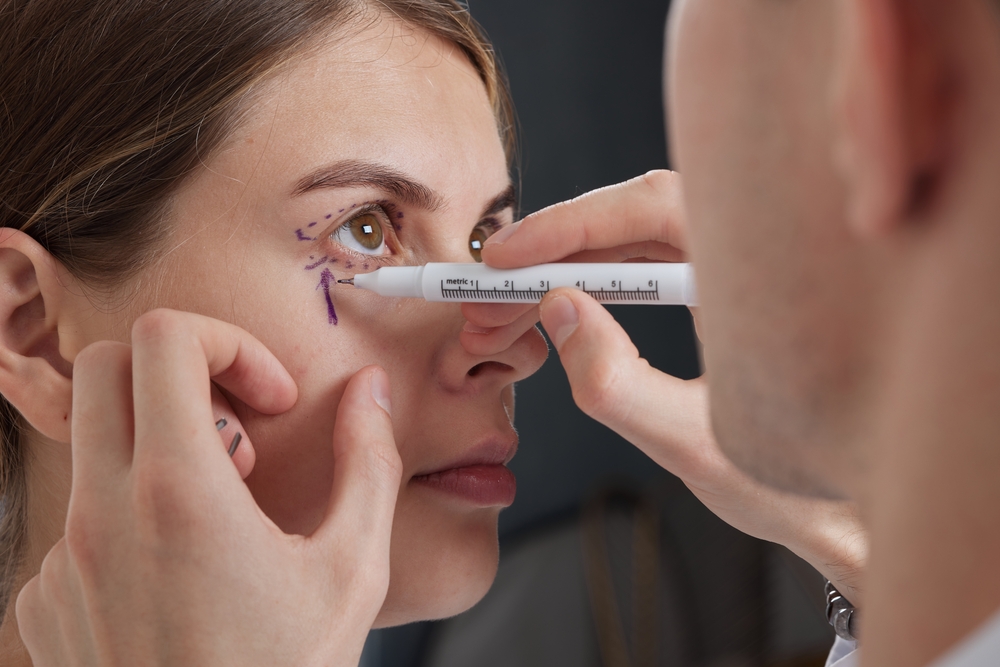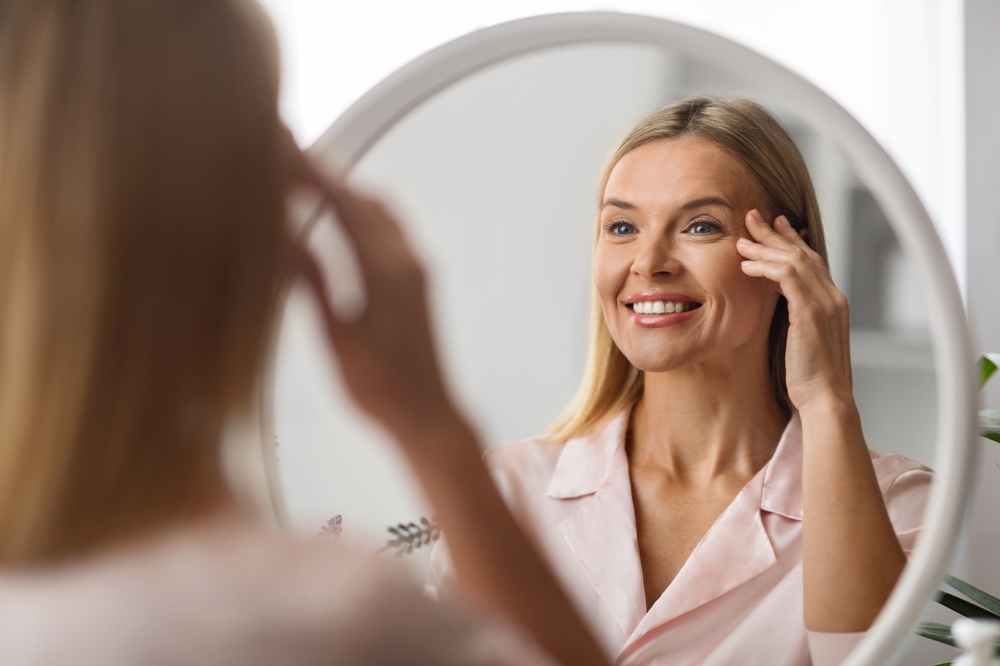What Happens During Eyelid Surgery?
Eyelid surgery, also called blepharoplasty, can treat many cosmetic and medical concerns, including adult strabismus and droopy eyelids. While the procedure is quick and has a short recovery time, it’s still natural to have concerns and questions about the process.
Keep reading to learn more about what happens during eyelid surgery and whether it could be right for you.
What Is Blepharoplasty?

Blepharoplasty is a procedure that removes extra skin from around the eyelids. As you age, the muscles in your eyelids stretch out and weaken.
This causes extra skin and fat to accumulate above and below the eyelids, leaving you with saggy eyebrows and droopy bags under the eyes. While sagging skin can be simply a cosmetic concern for some, it can also cause reduced vision because of the excess skin.
Eyelid surgery can help remove these obstructions to your vision while giving you a younger, smoother look. It can also help patients with adult strabismus, a condition where your eyes don’t look in the same direction simultaneously.
If you’re experiencing adult strabismus, eyelid surgery can improve your depth perception and help your eyes work together, enhancing your confidence in your appearance and vision.
When Is Eyelid Surgery Performed?
Eyelid surgery is a good option for patients who:
- Have excess skin that blocks their side vision
- Have bags under their eyes
- Have droopy upper eyelids
- Have adult strabismus
- Want to improve the appearance of the area around their eyes
- Have realistic expectations about the results of eyelid surgery
Before undergoing blepharoplasty, your eye doctor at Complete EyeCare West will conduct a thorough examination to ensure you are a good candidate for the procedure. Certain factors that may indicate you are not a good candidate include:

- You are under 30 years old
- You have an eye condition like dry eye, glaucoma, or a detached retina
- You have diabetes
- You have circulatory conditions like high blood pressure or cardiovascular disease
- You have thyroid conditions like hypothyroidism, hyperthyroidism, or Graves’ disease
They will also ask you about your medical history and the appearance and vision goals you have for the treatment.
What Happens Before Blepharoplasty?
If your eye doctor determines you are a good candidate for eyelid surgery, you will likely be asked to stop taking certain medications, such as aspirin and ibuprofen, before the treatment.
You’ll need to stop smoking several weeks before, as smoking makes it harder for your body to heal. Most eyelid surgeries occur in an outpatient setting, so you’ll also need to arrange for someone to drive you to and from your appointment.
It’s essential to have someone spend the night at your home right after surgery to ensure your healing goes smoothly.
What to Expect During Blepharoplasty
Before the procedure begins, you’ll receive numbing injections and IV medications to help you relax during the procedure. If you’re having an upper eyelid surgery, your surgeon will start by making a small incision on the fold of your eyelid.
Then, they will carefully remove excess skin, fat, and muscle. Finally, they will close the incision.
If you’re receiving a lower eyelid surgery, your surgeon will make the incision below your eyelashes. Then, they will remove any extra skin, muscle, and fat before closing the incision.
Some patients with eyelid skin that droops near their pupils also need a treatment called ptosis. This procedure can be done at the same time as eyelid surgery and helps lift the eyelid.
What is Recovery Like After Blepharoplasty?
Immediately after the procedure, you’ll wait in a recovery room while your eye doctor monitors you. Once you are cleared to leave, you can have a friend or loved one drive you home from the procedure.
It’s common to experience some temporary symptoms such as:
- Watery eyes
- Light sensitivity
- Double vision
- Puffy eyelids
- Blurry vision from ointment that’s applied to the eyes
- Swelling or bruising
- Discomfort or pain
These side effects are typical and should go away within a few days. If you notice extreme pain, bleeding, or vision issues, seek emergency medical assistance.
Your eye surgeon will give you more detailed aftercare instructions before sending you home, but here are some general things you should and shouldn’t do after blepharoplasty:
- Do use ice packs on your eyes for ten minutes out of every hour the day and night after the surgery
- Do use eye drops and ointments your eye doctor has prescribed
- Do sleep with your head raised about your chest
- Do wear dark sunglasses to protect your eyes
- Don’t do strenuous physical activity for at least a week
- Don’t wear contacts for at least two weeks
- Don’t rub your eyes
- Don’t take medications like ibuprofen that can increase bleeding

Many patients feel comfortable resuming normal activities after 10 to 14 days of recovery. However, it can take a few months to fully heal from the procedure.
The results are typically long-lasting; upper blepharoplasty patients can enjoy their results for five to seven years or a lifetime, and most lower blepharoplasty patients enjoy their results for the rest of their lives.
Blepharoplasty can enhance your quality of life by improving your vision and increasing self-confidence in your appearance. The procedure can help you embrace your natural beauty and look more youthful and refreshed.
For patients experiencing vision issues due to sagging eyelids or adult strabismus, eyelid surgery can also help them regain visual freedom and enjoy the world in greater clarity.
Are you ready to discover whether eyelid surgery could be right for you? Schedule an appointment at Complete EyeCare West in Colombus, OH, today!







